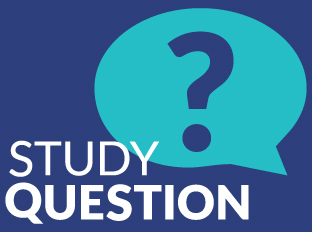SIE Comparison Chart
Need help determining when you should take your exam with the upcoming changes regarding the SIE exam? We made an invaluable chart to help! Continue reading
Need help determining when you should take your exam with the upcoming changes regarding the SIE exam? We made an invaluable chart to help! Continue reading
Submit your answer to info@solomonexamprep.com to be entered to win a $10 Starbucks gift card. Continue reading
Submit your answer to info@solomonexamprep.com to be entered to win a $10 Starbucks gift card.
Congratulations to Elizabeth S., this month’s Study Question of the Month winner!
Question
Relevant to the SIE, Series 7, Series 24, Series 79, and Series 82.

Which of the following would not necessarily be restricted shares when you purchase them?:
A. Shares sold by the CEO of the issuing company
B. Shares sold by the CEO’s wife of the issuing company
C. Shares sold by the assistant to the CEO of the issuing company
D. Shares sold by a major shareholder (more than 10% ownership) of the issuing company
Answer: C.
Securities that are held by control persons are called control securities. A control person, or affiliated person, is an individual in a position to exert direct influence on the actions of an issuer. For example, officers, directors, policy-making executives, major shareholders (generally own 10% or more of outstanding shares), and other people who are in a position to directly or indirectly control the management of the company are considered control persons. This includes spouses, family members who live with them, and other entities such as trusts or corporations affiliated with control persons, as defined in Rule 144. When control securities are sold, they become restricted securities even if they were not restricted securities previously.
***Submit your answer to info@solomonexamprep.com to be entered to win a $10 Starbucks gift card.*** Continue reading
Congratulations to Margaret C., this month’s Study Question of the Month winner!
See the answer below!
***Submit your answer to info@solomonexamprep.com to be entered to win a $10 Starbucks gift card.***
Question (Relevant to the Series 6, Series 7, Series 62, Series 65, Series 66, Series 82)

To qualify as a long-term capital gain or loss, stock must be held for more than one year. At purchase, the holding period clock begins:
A. On the trade date
B. One day after the trade date
C. On the settlement date
D. One day after the settlement date
Answer: B. According to the IRS, the holding period clock begins the day after the shares were purchased.
If you’ve ever traded securities or studied for a securities licensing exam, then you’ve probably come across T+3. No, it’s not an herbal supplement or an embarrassing medical procedure. Continue reading
If you’ve ever traded securities or studied for a securities licensing exam, then you’ve probably come across T+3. No, it’s not an herbal supplement or an embarrassing medical procedure. T+3 refers to the regular-way settlement period for most securities transactions. This means that securities must be paid for and delivered by three business days from the trade date. T+3 also means you don’t become the owner of record of a security until three business days after you purchase it.
Well, add T+3 to the list of things that have gone out of style. Effective May 30, 2017, the SEC will shorten the regular-way settlement period to two business days. And so will begin the age of T+2, which is intended to “increase efficiency and reduce risk for market participants,” according to SEC Acting Chairman Michael Pinowar.
This shorter settlement period for the trading of secondary market securities has been discussed by the SEC for years. The change is expected to lower margin requirements for clearing agency members, reduce liquidity stress when markets are volatile, and harmonize settlement with European markets, which moved to T+2 in 2014.
This settlement period will not apply to every securities transaction, though. T+2, like T+3 before it, will apply to:
The securities industry moves fast. Don’t get left behind! Visit www.solomonexamprep.com or call us at 503-601-0212 for more information about the latest securities exam preparation and education.
Solomon has helped thousands pass their Series 6, Series 7, Series 24, Series 26, Series 27, Series 28, Series 50, Series 51, Series 52, Series 53, Series 62, Series 63, Series 65, Series 66, Series 79, Series 82, and Series 99.
This month’s study question from the Solomon Online Exam Simulator question database is now available! Continue reading
This month’s study question from the Solomon Online Exam Simulator question database is now available!
***Submit your answer to info@solomonexamprep.com to be entered to win a $10 Starbucks gift card.***

Question (Relevant to the Series 6, Series 7, Series 24, Series 26, Series 27, Series 51, Series 52, Series 53, and Series 82):
Which of the following claims would be covered by SIPC?
A. Claims of officers or partners of the failed firm
B. Claims involving nontransferable assets
C. Claims of subordinated lenders
D. Claims of persons who own more than 5% of the failed firm
Answer: B. SIPC only covers losses due to firm bankruptcy. It does not cover market losses. Nontransferable assets, such as proprietary funds and bonds in default, are covered as long as they are within the $500,000 limit for the account.
Additionally, the following claims are excluded from SIPC coverage:
With the release of the Solomon Exam Prep app, you have full mobile access to your Solomon study materials with the click of a button. Continue reading
Do you need to take a securities licensing exam?
Do you wish you had more time to study?
With the release of the Solomon Exam Prep Android app, you have full mobile access to your Solomon study materials at the click of a button.
Move into the future of mobile securities exam prep with the Solomon Exam Prep app!
To download the app, please visit: goo.gl/IkNceh
Solomon Exam Prep has helped thousands of financial professionals pass their FINRA, NASAA, and MSRB licensing exams, including the Series 6, Series 7, Series 24, Series 26, Series 27, Series 28, Series 50, Series 51, Series 52, Series 53, Series 62, Series 63, Series 65, Series 66, Series 79, Series 82, and the Series 99.
Thanks to a robust study program I felt fully prepared and confident to sit for the Series 82 exam, and achieved a score of 87%. Thank you, Solomon Exam Prep. Continue reading

Question (Relevant to the Series 6, Series 24, Series 62, and Series 82):
Which of the following would most likely be classified as a branch office? Continue reading
Congratulations to Nick M., this month’s Study Question of the Month winner!
See the answer below!
This month’s study question from the Solomon Online Exam Simulator question database is now available!
***Submit your answer to info@solomonexamprep.com to be entered to win a $10 Starbucks gift card.***

Question (Relevant to the Series 6, Series 24, Series 62, and Series 82):
Which of the following would most likely be classified as a branch office?
A. The floor of a registered exchange
B. A vacation home where the registered representative works for 45 business days a year
C. A customer service office where no sales activities are conducted
D. A location used primarily for non-securities activities and from which 25 securities transactions are effected a year
Answer: B.
A branch office is any location where one or more associated employees is in the business of soliciting or effecting (but not executing) the purchase or sale of any security.
A location outside of a primary residence, for example, a vacation home, is considered a non-branch location as long as it is used for securities business fewer than 30 business days per year.
The floor of a registered exchange is also considered a non-branch office if it is where a member firm conducts business with public customers.
Other examples of non-branch offices include:
On Friday, July 8, the Treasury Department reported that the yield on the 10-year Treasury note was its lowest ever: 1.36%. This is astonishing given that this popular US government debt investment has been traded for 226 years (since 1790). Continue reading

On Friday, July 8, the Treasury Department reported that the yield on the 10-year Treasury note was its lowest ever: 1.36%. This is astonishing given that this popular US government debt investment has been traded for 226 years (since 1790).
Treasury notes and other government debt instruments are affected by supply and demand, inflation expectations, monetary policy, and the general state of the economy, among other factors. This historic drop in Treasury yields has been driven by increased demand due to the global “flight to quality” after the Brexit vote, negative yields in Europe and Japan, a cautious Federal Reserve, and slow economic growth around the world.
For anyone studying for the Series 6, Series 7, Series 65, Series 66, Series 79, Series 62, or Series 82, it’s important to remember that bond prices and yields move in opposite directions. That’s why the relationship is often compared to a seesaw. When the demand for bonds increases, bond prices go up, and yields go down. Conversely, when demand decreases, bond prices go down and yields go up. As demand has surged for Treasury notes and other US government debt, the yield on these notes has declined to record low levels.
This month’s study question from the Solomon Online Exam Simulator question database is now available! Relevant to the Series 7, 62 and 82. —ANSWER POSTED— Continue reading
This month’s study question from the Solomon Online Exam Simulator question database is now available!
***Submit your answer to info@solomonexamprep.com to be entered to win a $10 Starbucks gift card.***
Question (Relevant to the Series 7, Series 62 and Series 82): Which of the following is not true of commercial paper?
Answers:
A. It is used to cover an issuer’s short-term needs such as payroll and inventory
B. It typically matures in less than 90 days, but it can have a term as long as 397 days.
C. It is generally issued in lots of $100,000, but they can be sold at a discount in the primary market
D. Highly rated commercial paper is generally considered safe enough to be purchased by money market funds, but it is rarely purchased by retail investors.
Correct Answer: B. It typically matures in less than 90 days, but it can have a term as long as 397 days.
Rationale: Large corporations, banks, and financial firms with high credit ratings may issue commercial paper to cover short-term needs, such as payroll and inventory, and to finance general operations. Commercial paper is unsecured and issued at a discount, and typically matures in less than 90 days, although it can have a term as long as 270 days. It is generally issued in lots of $100,000, but they can be sold at discount in the primary market. Even though it is unsecured, because it is short-term and issued only by banks and large corporations with high credit ratings, commercial paper is generally considered safe enough to be purchased by money market funds, but it is rarely purchased by retail investors.
Congratulations Alexander B. this month’s Study Question of the Month winner!
***Submit your answer to info@solomonexamprep.com to be entered to win a $10 Starbucks gift card.***